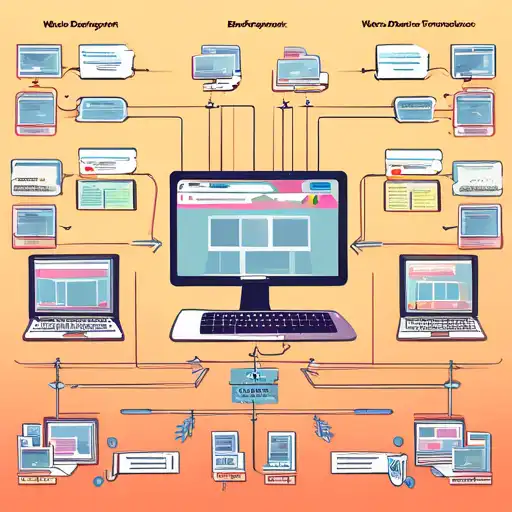Understanding Web Development Frameworks
In the ever-evolving world of web development, choosing the right framework is crucial for building efficient, scalable, and maintainable websites and applications. With a plethora of options available, developers often find themselves at a crossroads, trying to determine which framework best suits their project needs.
What Are Web Development Frameworks?
Web development frameworks are software libraries designed to support the development of web applications by providing a standard way to build and deploy them. They offer a foundation upon which developers can build, saving time and effort by eliminating the need to write code from scratch.
Key Factors to Consider When Choosing a Framework
Selecting the right web development framework involves considering several factors that can significantly impact the success of your project. Here are some key considerations:
- Project Requirements: The nature and requirements of your project play a pivotal role in determining the most suitable framework.
- Learning Curve: Some frameworks are more beginner-friendly than others. Consider the skill level of your team.
- Community and Support: A strong community and good documentation can be invaluable resources.
- Performance: Evaluate the performance benchmarks of the framework to ensure it meets your project's needs.
Popular Web Development Frameworks
Here's a look at some of the most popular web development frameworks today:
- React.js: A JavaScript library for building user interfaces, particularly single-page applications.
- Angular: A platform and framework for building single-page client applications using HTML and TypeScript.
- Vue.js: An approachable, performant, and versatile framework for building web user interfaces.
- Django: A high-level Python web framework that encourages rapid development and clean, pragmatic design.
Making the Right Choice
Ultimately, the choice of a web development framework depends on your project's specific needs, your team's expertise, and the long-term maintenance considerations. It's advisable to prototype with a couple of frameworks before making a final decision to see which one aligns best with your project goals.
For more insights into web development, check out our guide on the latest web development trends.
Conclusion
Choosing the right web development framework is a critical decision that can influence the efficiency, scalability, and success of your project. By carefully considering your project requirements, team skills, and the framework's community and performance, you can make an informed choice that will serve your project well into the future.
